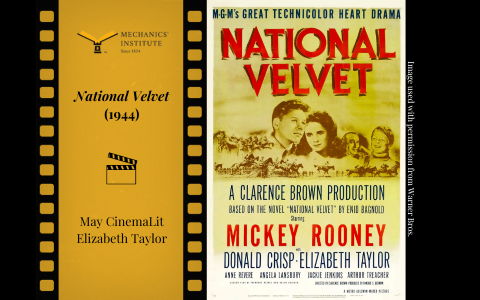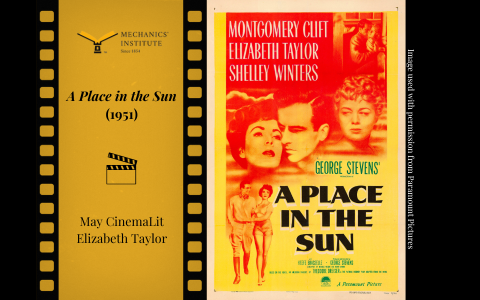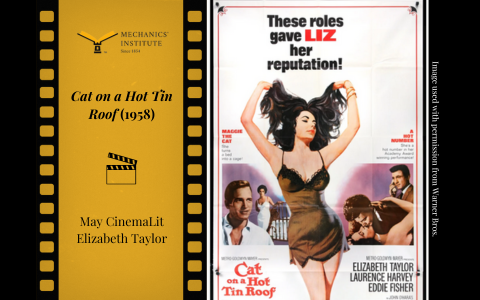
CinemaLit Film Series
April 2021 – Wonderful William Wyler
The Academy Awards are handed out on April 25 this year, and now seems like the right moment to pay tribute to William Wyler. With twelve nominations and three wins, he remains the most honored director in Academy history.
We are highlighting five Wyler films, each a nominee for Best Picture and for acting categories, with one capturing the Best Picture, Director, Actor, and Supporting Actor honors: the multiple Oscar winning The Best Years of Our Lives (1946), Dodsworth (1936), Dead End (1937), Wuthering Heights (1939), and The Little Foxes (1941).
Born in Alsace-Lorraine in 1902, young Wyler soon proved himself unfit for the family haberdashery business. His mother arranged for her rebellious son to meet Carl Laemmle, her talent-scouting cousin and founder of Universal Pictures. Eventually, Wyler moved to Southern California and the Universal lot, where he began as a production assistant. Laemmle spotted his potential right away, and Wyler was directing by age 23. His silent film forte was Westerns, but sound liberated him artistically, and soon he flourished in dramas, comedies, and romances. From there, it was straight up for Wyler and into the pantheon of Hollywood's all-time greatest directors.
Wyler's output of classics is unmatched, and the urge to recite lists and hyperbolize is irresistible. The following are a few of his titles not featured in this month's tribute. Classic film buffs will recognize the magnitude of excellence here: These Three, Come and Get It, Jezebel, The Letter, Mrs. Miniver, The Memphis Belle, The Heiress, Detective Story, Roman Holiday, Friendly Persuasion, The Big Country, Ben-Hur, The Collector, and Funny Girl.
What made Wyler so good? The short answer is he was a perfectionist, and kept a close eye on every aspect of production. He was a subtle master, not prone to lavish directorial trickery. His gifts for storytelling, visual compositions, pacing, and dramatic conflict were superb. He knew to surround himself with the best in the business – producer Samuel Goldwyn, cinematographer Gregg Toland, and editor Daniel Mandell, among others.
Above all, Wyler was an actor's director. He directed many of the biggest stars for several decades, from Humphrey Bogart and Bette Davis to Gary Cooper, Kirk Douglas, Audrey Hepburn, and Barbra Streisand. He was known for multiple takes, following each with a simple, "Let's do it again." He would not readily articulate his wishes, allowing the actors to grow in their roles using their own creative powers. If his method drove them crazy ("Why don't you tell me when I'm good?" was the typical query on a Wyler set), there is no arguing the results. Wyler directed a never surpassed thirty-six Oscar nominated performances, with fourteen of them winning.
Actors spoke reverently of "Willie," grateful for the performances he drew out of them. And, like many great artists, he could be wry and plainspoken. Keep it simple, he believed. He was asked about the secret of his phenomenal success. "I have a theory," he replied. "Not to bore the audience. That's a good theory."
April 2 – The Best Years of Our Lives (1946) – 171 minutes
William Wyler flew in bombing missions in the Information Division of Special Services during World War II. Like fellow directors John Ford, George Stevens, and John Huston, he readily took to capturing the war on film through government-financed documentaries. His film The Memphis Belle, about the crew of a massive B-17 bomber, was released in 1944.
After the war, Wyler sought to explore the adjustments of veterans to civilian life. "People kept saying, 'You can't make a film about war veterans,'" said Wyler. "Who wants to see that now? The war is over!" Undeterred, he used MacKinlay Kantor's novel Glory for Me as his template. With screenwriter Robert E. Sherwood and producer Samuel Goldwyn, he fashioned a story of three soldiers returning to their midwestern home. The sergeant (Fredric March) has a loving wife (Myrna Loy) and kids, yet he carries invisible scars from the war. The bomber captain (Dana Andrews) comes back to a humiliating job and a crass war bride (Virginia Mayo) who is more interested in showing off her man in uniform than attending to his damaged psyche. The naval petty officer (non-professional actor Harold Russell) faces the greatest challenges as a bilateral amputee, having lost both his hands in the war.
The raw material was tricky, but the project was ideal for Wyler. The Best Years of Our Lives was "one of the most successful films I ever made, " he said, "and it was also one of the easiest…. I knew these people, had shared a good many of their experiences. When I went on the set in the morning, it was no problem to imagine what they would do in a situation because I already knew it in my heart."
The resulting film was widely embraced by matinee audiences, French film scholars, and newspaper critics alike. The Academy of Motion Picture Arts and Sciences lavished it with seven Oscars, plus a special award to Russell, himself an amputee, for "bringing hope and courage to his fellow veterans." Best Years is a marvel of high quality, from Sherwood's compassion-filled script, to Hugo Friedhofer's score, Gregg Toland's deep focus photography, and the unerringly fine performances. Ultimate credit goes to Wyler for bringing it all together in a film of shimmering emotional honesty.
The Best Years of Our Lives discussion will be introduced by Judy Wyler Sheldon, daughter of director William Wyler.
 Judy Wyler Sheldon was born and raised in Los Angeles. She moved to San Francisco in 1965 and worked for the Office of Economic Opportunity (OEO), a federal government agency, in the Headstart and the Community Action programs. After getting married and living in Greece for almost two years, Wyler Sheldon returned to San Francisco and worked in city government. She retired after the birth of her first son. She has been the board president, and is currently the chairman of the board of the San Francisco Silent Film Festival.
Judy Wyler Sheldon was born and raised in Los Angeles. She moved to San Francisco in 1965 and worked for the Office of Economic Opportunity (OEO), a federal government agency, in the Headstart and the Community Action programs. After getting married and living in Greece for almost two years, Wyler Sheldon returned to San Francisco and worked in city government. She retired after the birth of her first son. She has been the board president, and is currently the chairman of the board of the San Francisco Silent Film Festival.
 Matthew Kennedy, CinemaLit’s curator, has written biographies of Marie Dressler, Joan Blondell, and Edmund Goulding. His book Roadshow! The Fall of Film Musicals in the 1960s, was the basis of a film series on Turner Classic Movies.
Matthew Kennedy, CinemaLit’s curator, has written biographies of Marie Dressler, Joan Blondell, and Edmund Goulding. His book Roadshow! The Fall of Film Musicals in the 1960s, was the basis of a film series on Turner Classic Movies.
“I don't have a favorite film,” Matthew says. "I find that my relationships to films, actors, genres, and directors change as I change over the years. Some don't hold up. Some look more profound, as though I've caught up with their artistry. I feel that way about Garbo, Cary Grant, director John Cassavetes, and others."
“Classic films have historical context, something only time can provide,” Matt observes. “They become these great cultural artifacts, so revealing of tastes, attitudes, and assumptions.”
INSTRUCTIONS FOR JOINING THE CINEMALIT SALON
First watch the selected film on Kanopy. All you will need is either a Mechanics' Institute library card, or a San Francisco Public Library card, which will give you access to Kanopy and its treasure trove of movies. Make a reservation for our CinemaLit Salon as usual via Eventbrite and watch the film on Kanopy at your leisure. You will receive a link to the Friday night CinemaLit salon on Zoom one day in advance, and then an additional reminder roughly two hours in advance. On the night of the salon click the Zoom link and join us.
If you do not receive a Zoom Link by 4:00 PM on the day of the event, contact Pam Troy at [email protected].
KANOPY INSTRUCTIONS
Mechanics’ Institute members can now sign up for FREE access to Kanopy, a wonderful film streaming service. To sign up:
1. Click on THIS LINK.
2. Click on the large orange login button that reads, “Log in to milibrary.”
3. Enter the 14-digit bar code from your MI Library card
4. Set up your account following Kanopy’s instructions, including your email and a password.
5. Kanopy will send verification to your email address.
You’ll be able to choose from a wonderful selection of films, including classics, pre-code, foreign films, and documentaries, including the films we’ve scheduled this month for CinemaLit.
If you are not a Mechanics’ Institute member, consider membership and click HERE to join online:
Or, you can check with your public library to see if they are Kanopy members. If so, you may use your public library card to set up a Kanopy account.
Register with Eventbrite below.
If the green TICKET button is not immediately visible, scroll down on the right in the Eventbrite window until it appears.
CinemaLit Films

Future CinemaLit Films
Apr 26 - 6:00 pm
CinemaLit: The Way He Looks (2013)
April CinemaLit: International Coming of Age Films
May 3 - 6:00 pm
CinemaLit: National Velvet (1944)
May 2024 CinemaLit - Elizabeth Taylor: Actress and Superstar
May 10 - 6:00 pm
CinemaLit: A Place in the Sun (1951)
May 2024 CinemaLit - Elizabeth Taylor: Actress and Superstar






